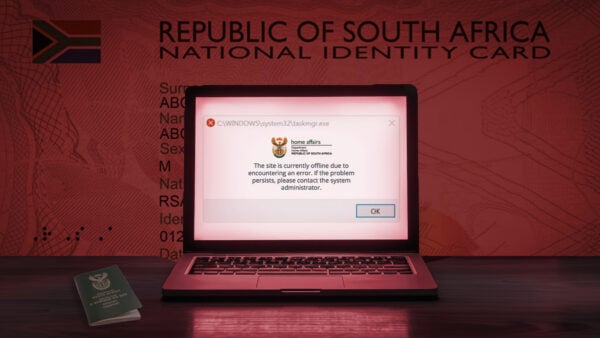Questions about education department spending R2 million on 22 laptops

The State Information Technology Agency (SITA) says it supports calls for an investigation into the procurement of 22 laptops at over R2 million by the Mpumalanga Department of Basic Education.
This comes after the MEC for Education in the province, Landulile Cathrine “Cathy” Dlamini, told provincial MPs that her department had procured the laptops through “the SITA contract”.
Dlamini was responding to a question-and-answer session in the provincial legislature last week and said the new laptops cost R91,482.50 each.
However, the total amount came to R2,020,883.45, which results in an average price of R91,858.34 — a discrepancy of R375.84 per laptop.
Dlamini highlighted the SITA contract in her response to allegations that the provincial government had overlooked Project Management Unit (PMU) guidelines when sourcing the laptops.
“The department did not overlook PMU processes. These materials are not classified as LTSM — that is, learner-teacher support material — and thus should be procured through the SITA contract,” she explained.
“The beneficiaries are administrators and school managers, who use these for administration processes and not for teaching and learning.”
Mentioning SITA also shifted the blame for the high price from the Mpumalanga Provincial Government to the state-owned IT supplier.
However, SITA has hit back, explaining that Dlamini’s department had a panel of suppliers to choose from to procure the computers.
SITA said it was responsible for establishing the transversal panel (RFB740) that enables government departments to source laptops from suppliers. SITA said it does not financially benefit from it.
It explained that a transversal panel is a list of pre-approved suppliers who have been vetted and are part of National Treasury and SITA’s procurement mechanisms, which ensure compliance, competitiveness, and fair opportunity.
“We established the transversal procurement panels to build the capacity of the state, and not to destroy it,” said SITA’s head of corporate affairs, Tlali Tlali.
“We find it extremely concerning that, notwithstanding the existence of this transversal panel, which has both national and provincial reach, the department paid an outrageously exorbitant cost for those laptops.”
SITA calls for investigation

Tlali said that this raises questions and must invite an investigation to understand what really happened.
He said SITA was not involved in the procurement process of the 22 laptops and that there was no record of such a transaction on SITA’s systems.
Tlali said section 217 of the Constitution provides that the contracting of goods and services must, among other things, be “fair, equitable, transparent, competitive and cost-effective.”
Similar provisions in other laws and regulations must be followed by those who make procurement decisions.
He added that price reasonability is one of the factors embedded in the cost-effectiveness requirements of all bids.
The transversal contract SITA put in place has an engagement mechanism that provides parameters for a markup on products sourced by distributors from the original equipment manufacturers.
Tlali said the unit price at which these laptops were sold to the client has exceeded the threshold for a mark-up permitted under this transversal contract.
“We will be meeting with officials in the office of the Premier of Mpumalanga on Wednesday, 23 April 2025, to discuss and share information on the matter,” Tlali said.
“SITA will request information from the client as to who the supplier was and consider taking necessary steps.”
Convenient scapegoat

SITA has often been blamed for the failures at other government agencies and has become the subject of controversy among different factions in the South African government.
Home Affairs minister Leon Schreiber, a DA MP, and his ANC predecessor have criticised SITA as the source of many of the customer service issues plaguing their department.
Similarly, the Portfolio Committee on Justice and Constitutional Development blamed SITA for impeding the functioning of South Africa’s courts.
Responding to these and other complaints, communications minister Solly Malatsi has proposed amending the regulations governing SITA.
He has argued that the agency is overburdened, as SITA is currently tasked with the needs of over 250 national, provincial, and municipal departments.
He would like to allow smaller departments to procure their own equipment and IT services, allowing SITA to better serve bigger departments such as Home Affairs.
Chairperson of the Parliamentary portfolio committee for communications and digital technologies, Khusela Diko, slammed Malatsi’s plan, saying the SITA Act does not allow what he is proposing.
“He wants to throw out the baby with the bath water and chooses to cripple the system instead of strengthening it,” Diko stated.
































